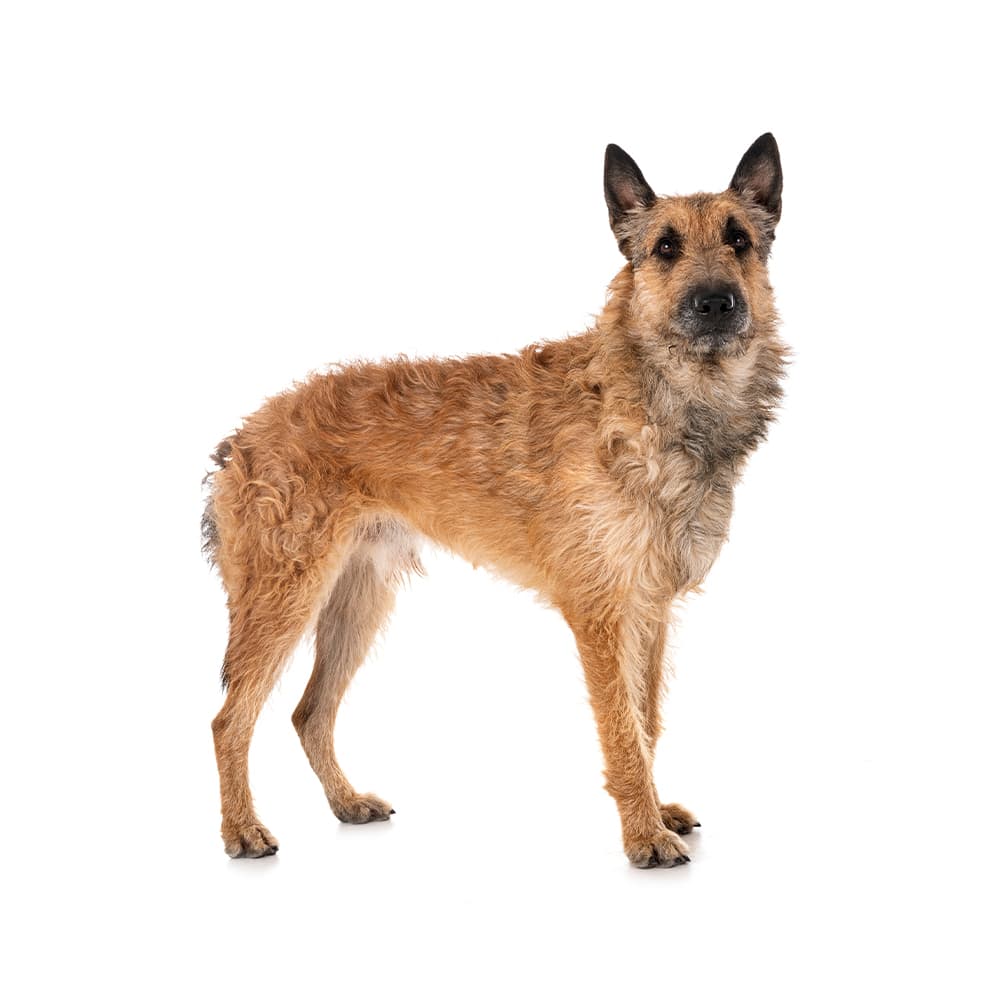Basepaws analyzes this breed as part of a group of other breeds.


Basepaws analyzes this breed as part of a group of other breeds.


Basepaws analyzes this breed as part of a group that also includes Belgian Laekenois, Belgian Malinois, Belgian Tervuren.
Despite being distinct in characteristics and origin, some pairs or groups of breeds lack the number of genetic differences required to distinguish these populations from one another, particularly when only a subset of these differences are inherited by a mixed breed dog. As we continue to expand our breed database, we aim to increase the resolution of our ancestry algorithm such that differentiating between increasingly specific ancestral sources becomes possible.

The Belgian Laekenois (pronounced "Lak-in-wah") is one of four varieties of Belgian herding dogs, which include the Belgian Tervuren, Belgian Malinois, and Belgian Groenendael. Each breed was named for the area in Belgium where they were developed. The Laekenois was established in the area of Laeken, and was traditionally used as a herding dog and guard dog. These dogs were also used during both World Wars as messenger dogs and to pull ambulance carts and even machine guns.
The Belgian Laekenois can suffer from cardiomyopathy (dilated), cataracts, cerebellar ataxia (spongy degeneration), degenerative myelopathy, elbow dysplasia, elbow dysplasia (fragmented coronoid process), epilepsy, hip dysplasia, hypothyroidism, mucopolysaccharidosis VII, and progressive retinal atrophy. Genetic testing is recommended, including for the following additional conditions: hyperuricosuria, degenerative myelopathy, and progressive rod-cone degeneration.
The Belgian Laekenois is known for being intelligent, alert, and protective. As herding dogs, they have a strong work ethic and need plenty of physical and mental stimulation. They are loyal and form strong bonds with their families, but they can be wary of strangers. While they can get along well with children and other pets if properly socialized, they have a natural instinct to herd and may do so with children or smaller pets. Due to their protective nature, they can make excellent watchdogs.
Like all breeds, individual temperaments can vary, and early socialization and training are important to help ensure that they grow up to be well-rounded dogs. Given their high energy levels and intelligence, they thrive in homes where they can have plenty of exercise and mental stimulation.
A canine genetic lineage is a group of individuals or entire breeds that descended from common ancestors predating modern breed formation. Often these lineages are associated with a ‘type’ of dog with a unique historical working role and associated behaviors (e.g., herding, scent hunting, etc.).
Herding dogs are known for their high intelligence, trainability, and strong work ethic. These breeds originated in areas where managing livestock was an important part of daily life and had large pastoral lands. These breeds were specifically developed to help farmers and shepherds move, manage, and protect herds of livestock. Breeds within the herding dog lineage are agile and are known to have a natural herding instinct, where they like to keep their animals together. They are loyal and attentive to their handlers and are eager to please and are also highly aware of their environment. Many breeds within this linage have gone on to work as rescue and police dogs.
Example breeds with ancestry from this lineage include Border Collie, Cardigan Welsh Corgi, and German Shepherd.
According to the AKC, the original duty tasked to the Laekenois was to guard linen drying in the fields.
Belgian Laekenois dogs were used during World Wars I and II as messangers. Unfortunately, the dangers associated with wartime caused their numbers to severely decrease.
https://www.akc.org/dog-breeds/belgian-laekenois/
DOI:10.1002/9781119540687
Recommended by top vets with decades of experience
21 breeds
64 genetic health markers
50 genetic trait markers
